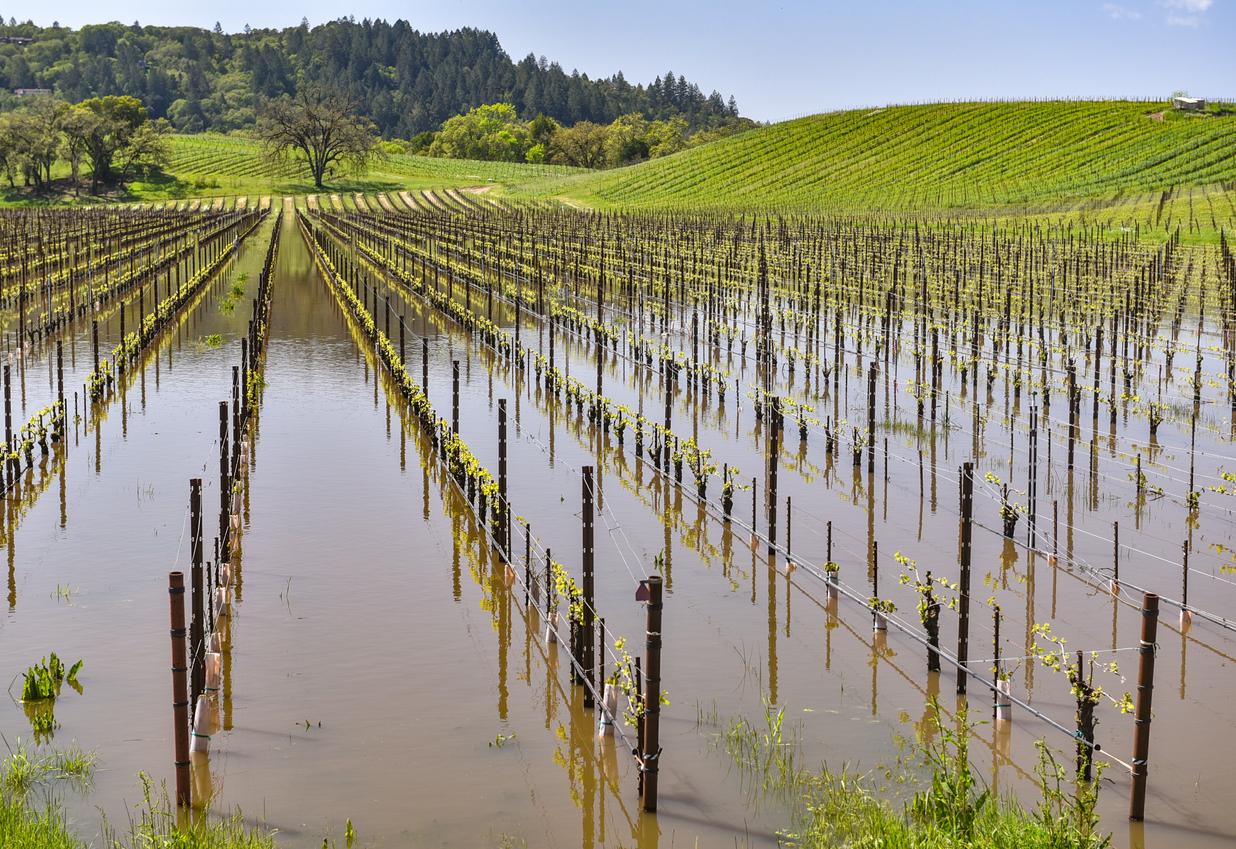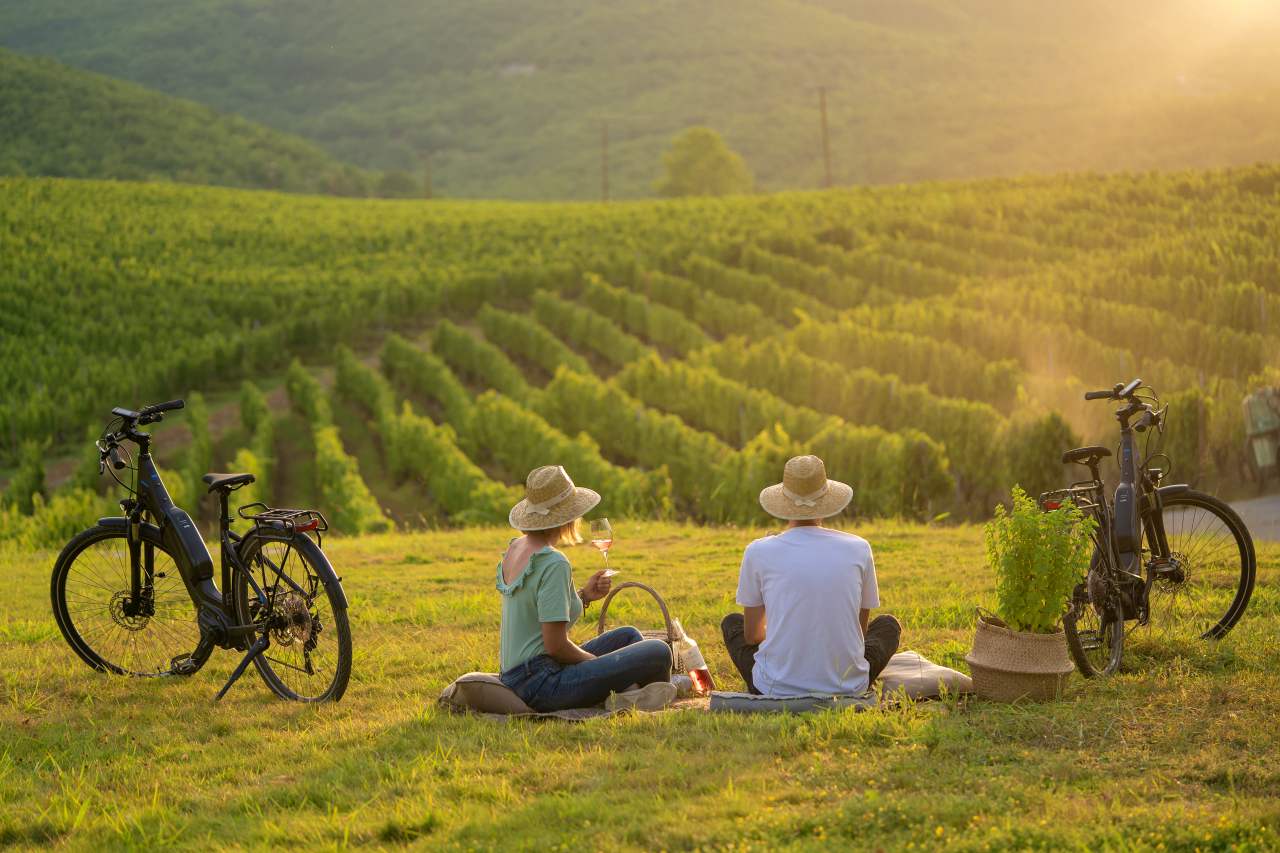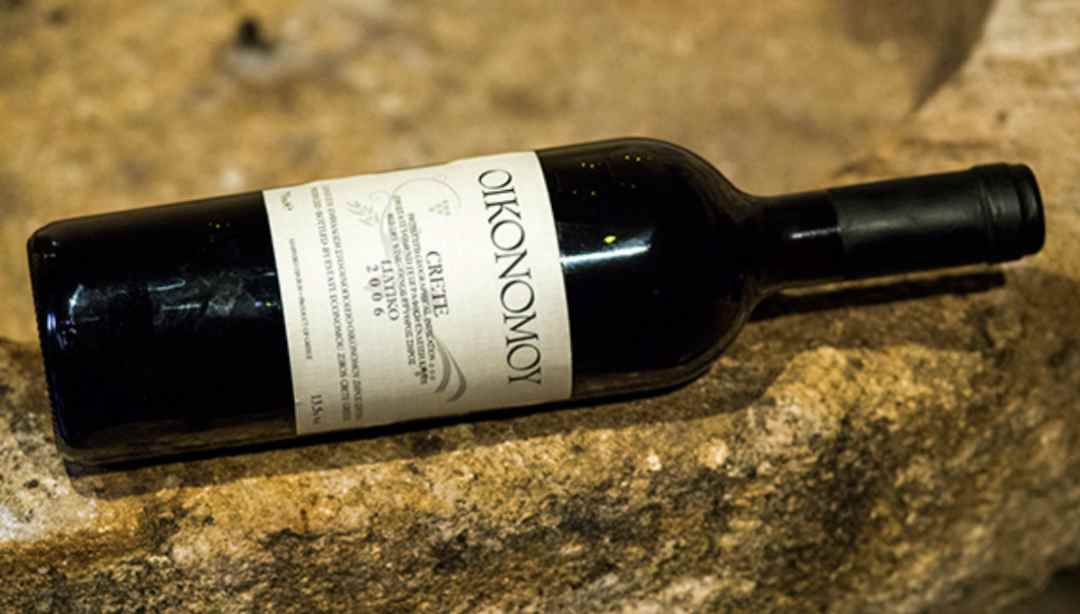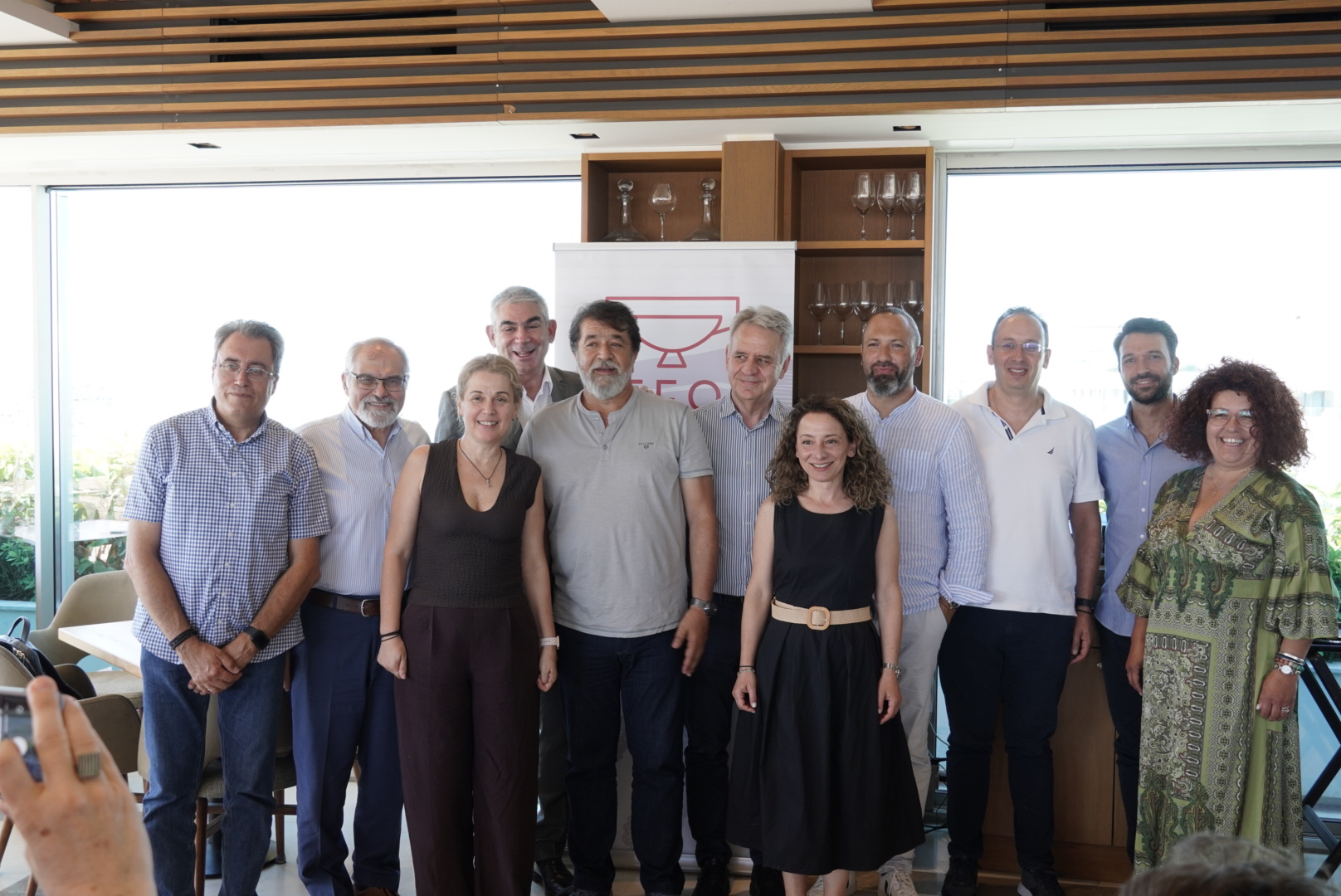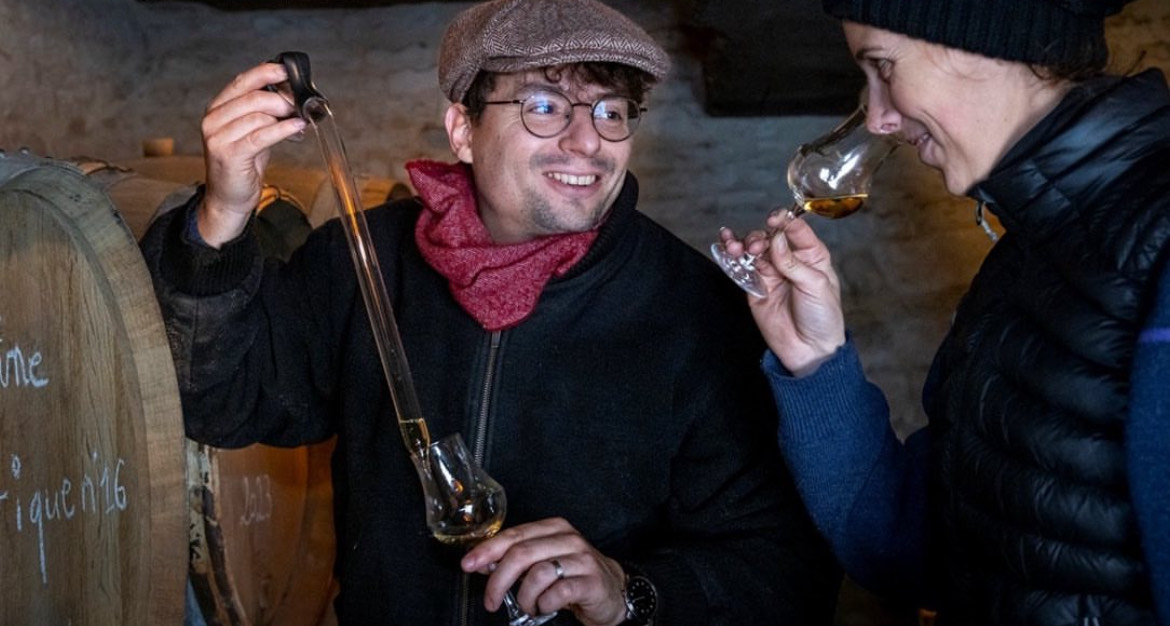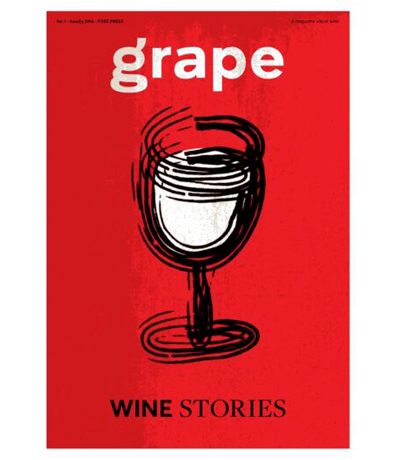The philosophy of winemaker Apostolos Thymiopoulos is simple: it is Xinomavro, Xinomavro, and a bit more Xinomavro. On this point, he tells me, he is unwavering. “Why should I do something different with our land? Have we already drowned the world in Xinomavro that we need to change to something else?” he asks, leaving little room for debate.
Undoubtedly talented – his actions have proven this – the oenologist from Naoussa is a multifaceted man. A believer in biodynamics, with a strong business approach to his work, Thymiopoulos is clearly passionate about what he does, which explains his popularity abroad. It also explains his wines; complex, abundantly fragrant, with finesse and plenty of what people are calling “the Naoussa new school” element, which means you no longer need to wait decades before enjoying a wine. If, however, you did choose to wait, you would surely be rewarded. Going straight from his studies in oenology (“I only applied to a single university, that’s how determined I was to go there”) to his successful release of Earth and Sky, Thymiopoulos’ journey is reminiscent of George Skouras and his first wine, Mega Oenos. When I tell him this, Thymiopoulos smiles, flattered by such a comparison. He is a fan of Skouras, though slightly more obsessed with the vineyards.
A colourful stone wall welcomes visitors to Thymiopoulos Vineyards in Naoussa, showcasing the variety of rocks in the surrounding terroir, with the rocks’ colours ranging from dark grey to almost red and brown, bringing clay to mind. “Apart from the vineyards that were already owned by the family, I also bought some land. Trilofos and Fyteia, our highest-elevation vineyards (at 550 metres above sea level), came later. Today, we have 29 different vineyards; 340 acres in total, all of them organically certified. Some of our partners are also certified, so as to cover needs for the foreign market. In fact, some of our partners are even greater fans of organic certification than we are. My father also cultivated organically, though he was never certified. Because I still employ this method, with even greater dedication, the result is purely the progeny of earth and sky; after all, that’s the name of my label, one that I came up with when I was a student. We use whatever the land gives us; we don’t play around with machinery, or yeasts, or anything. I am resolute when it comes to that.”
Thymiopoulos’ Xinomavro wine is dissimilar to other Xinomavro wines from the region. His goal, he says, is to capture and bottle the fragrant memories of the land where he grew up. Being an oenologist, he knows how to boost aromas and to combine anthocyanins with tannins to create the bright colour that has become his wine’s trademark. The winery produces 500 thousand bottles, of which 400 thousand are Naoussa PDO. And although the facilities and the vineyards are not yet open to the public, if oenophiles happen to be in the area, they’ll be welcome, upon appointment.
What is Xinomavro to you?
Xinomavro is a great challenge. It’s sour, acrid, watery, difficult to produce. It’s a difficult variety, which is what compels us to want to succeed in its production. It is the Greek variety that challenges all other varieties worldwide. My attitude is that you have to forget what you know. Forget protocols and vinification – each year takes you in a different direction, and you have to go with the flow. I never work by the book. Books tell you when it’s time to add sulphur, but if it’s sunny out, why bother with that? Biodynamic cultivation is a twofold process. On the one hand, marketing drives sales; on the other hand, your heart drives production. Then there’s homeodynamics, to make plants strong against weathering, similar to how homeopathy works for humans. After all, it’s easier to work biodynamically in Greece because of the climate. Biodynamic products are our weapon, and should be our forte. Instead, they make up a very small percentage of the market, something like five to seven percent, at best. Did the Northern Italians plant different varieties than Barolo because Barolo is tough and tannic? No. So why should I plant something different? That would be an act of defeat, in my opinion.
What do you say to those who claim your low prices are not on a par with the high quality of your wine?
I try to make wine attractive to the world. I want people to get to know my wine; why should I increase the prices? To buy a helicopter? We have more expensive wines in the making, from different vineyards. The quality analyses of our vinifications are very encouraging; however, for now, we’re happy with our prices. In any case, if we were to increase prices, we’d have the taxman on our back.
How did the addition of Santorini vineyards come about?
I was there in 2008-2009, helping out my friend Haridimos Hatzidakis with his harvest, and then ended up going back there regularly ever since. I miss Haridimos, as do others; he was a visionary. He wasn’t in it for the money. He never spoke about money. He wasn’t an investor like so many are in this business; he was an oenologist. A family friend had given us space in his winery to create Akrotéra. Unfortunately, after Haridimos’ death, things changed. We’ve just bought land in Santorini and are preparing to build. We have many partners there. For me, Santorini is a big challenge.
Will you be creating a new label?
That depends. The harvest is what dictates how work will proceed. There’s no set recipe for success. This place and the products it yields are so unique that it does a lot of the work for you. As long as you pay attention to its needs, the land will give you its best. The land is so powerful that it would be hard not to produce a good wine.
Which wines from other vineyards caught your attention?
I try to keep up with everything, especially my international competition, because I think of Greek winemakers not as competitors but colleagues. I greatly admire flawless natural wines, such as those wines from Jura that manage to elude oenological protocols and retain that intense oxidation without losing their flavour.
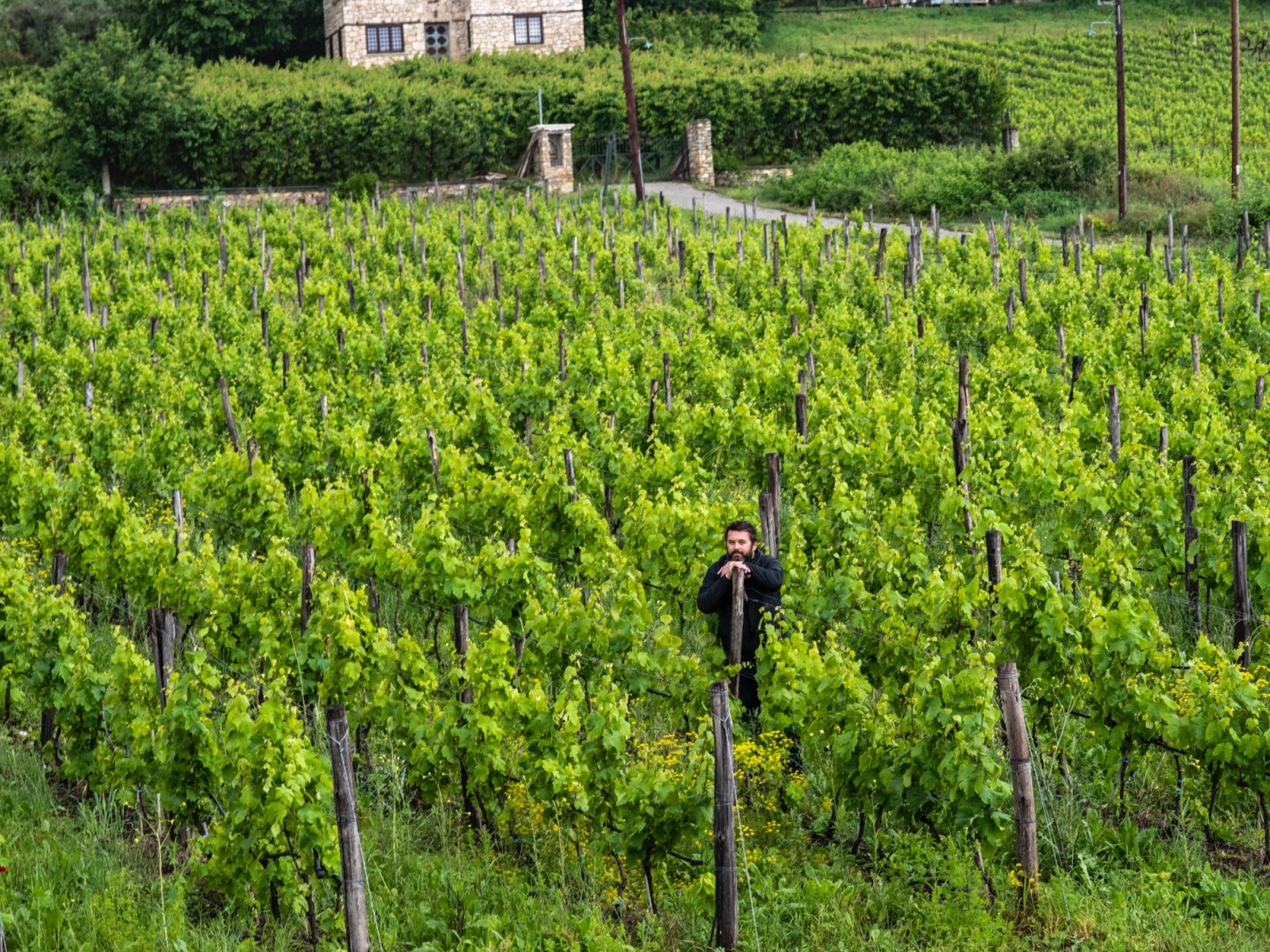
Before my visit to the vineyard in Naoussa, I enjoyed a very interesting vertical wine-tasting event, hosted by Apostolos Thymiopoulos and Gregory Michailos, at Mr. Vertigo in Athens.
Earth and Sky
2017 Released just before Easter 2019, this wine comes from an excellent year. Compared to the 2015 vintage, fans will notice a difference in flavour, thanks to the addition of stalks. There are intense notes of strawberry, pomegranate and sun-dried tomato, as well as a hint of lavender. Its extractability was increased for better ageing. The colour is strong, and it has quite intense tannins which, despite the wine’s youth, do not deter the drinker. It’s worth buying a bottle and forgetting about it in the cellar for a while.
2016 This is a deep red, full of red fruits such as raspberry, strawberry, tomato and spices, and hinting at the presence of vegetable notes. Its strength, and what set this apart from other wines we tried, is its balance. It’s an impressive Xinomavro with very good tannins and acidity, high alcohol rate, and very full-bodied. It will easily survive the ageing period, but if you don’t want to wait that long, it won’t, as its creator so colourfully puts it, “make your jaw drop with tannins.”
2008 Despite its age, it retains its vibrant colour. This is a traditional Xinomavro, but with unmistakable references to Nebbiolo. Its robust aromas, far from diminished, are of strawberry jam, tomato, and forest fruits, spices and vanilla. It delivers a very intense taste to the mouth, with excellently rounded tannins and the ideal acidity. It still has at least another decade of ageing ahead. To some, the leftover trace of the barrel might taste rustic, whereas to others, it provides a perfectly harmonized flavour.
2006 This was a particularly wet year, which is evident in the wine, says Thymiopoulos. It has an exceptional clarity of aromas, and has slightly less of the “barrel” about it compared to the 2008 vintage. It’s still intensely fruity, smelling of raspberry, wild strawberry, sun-dried tomato, cedar and spices, and has, despite its age, strong tannins. It’s beautifully rounded, with the appropriate acidity and a very long aftertaste. g


